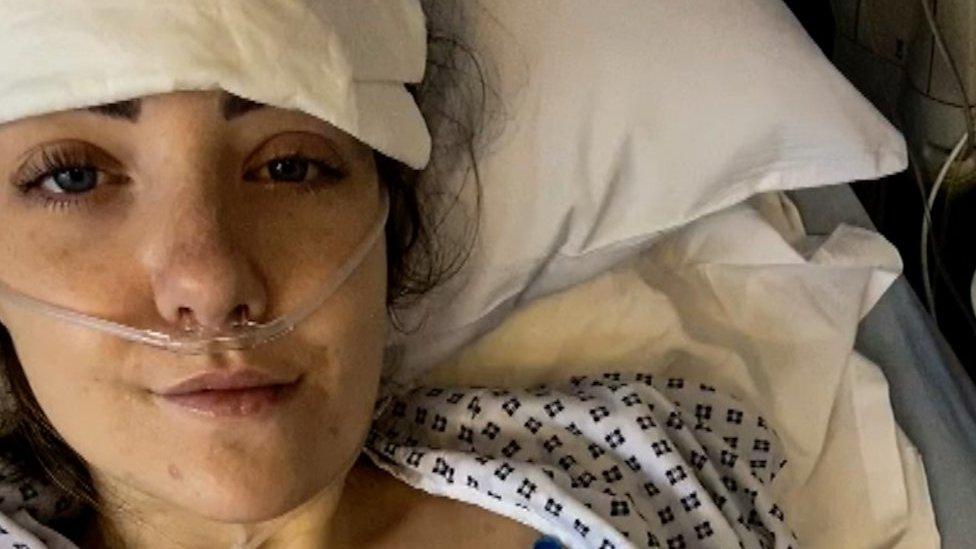Endometriosis: Credit card to pay for surgery after 23 years in pain
- Published
NHS waiting lists: 'I was in pain constantly through the day'
After 23 years of being told her pain was normal, Kim Williams paid for treatment out of desperation.
She has endometriosis and was told her life could be at risk without surgery.
"It's terrifying knowing we're in a tough financial situation because I've paid to have surgery," she said.
The Welsh government said it will spend an extra £1bn this Senedd term to help cut waiting times, but new figures show more people in Wales are now paying for private treatment.
Mrs Williams, 36, from Barry, Vale of Glamorgan, said she was presented with limited options.
She could either "stay on the NHS list, which at the time was at least three years; wait to have the bowel obstruction that the doctor was convinced was going to happen imminently; or have the surgery, privately".
Mrs Williams had already had to give up her job as a learning support assistant in a school, so initially though spending just over £4,000 on the procedure was not an option.
"But my husband said 'we can't wait for a bowel obstruction to happen and potentially lose you', so we took out a credit card," said the mother of five-year-old Olivia.
"It's the guilt that you feel that you've put yourself in this financial burden.
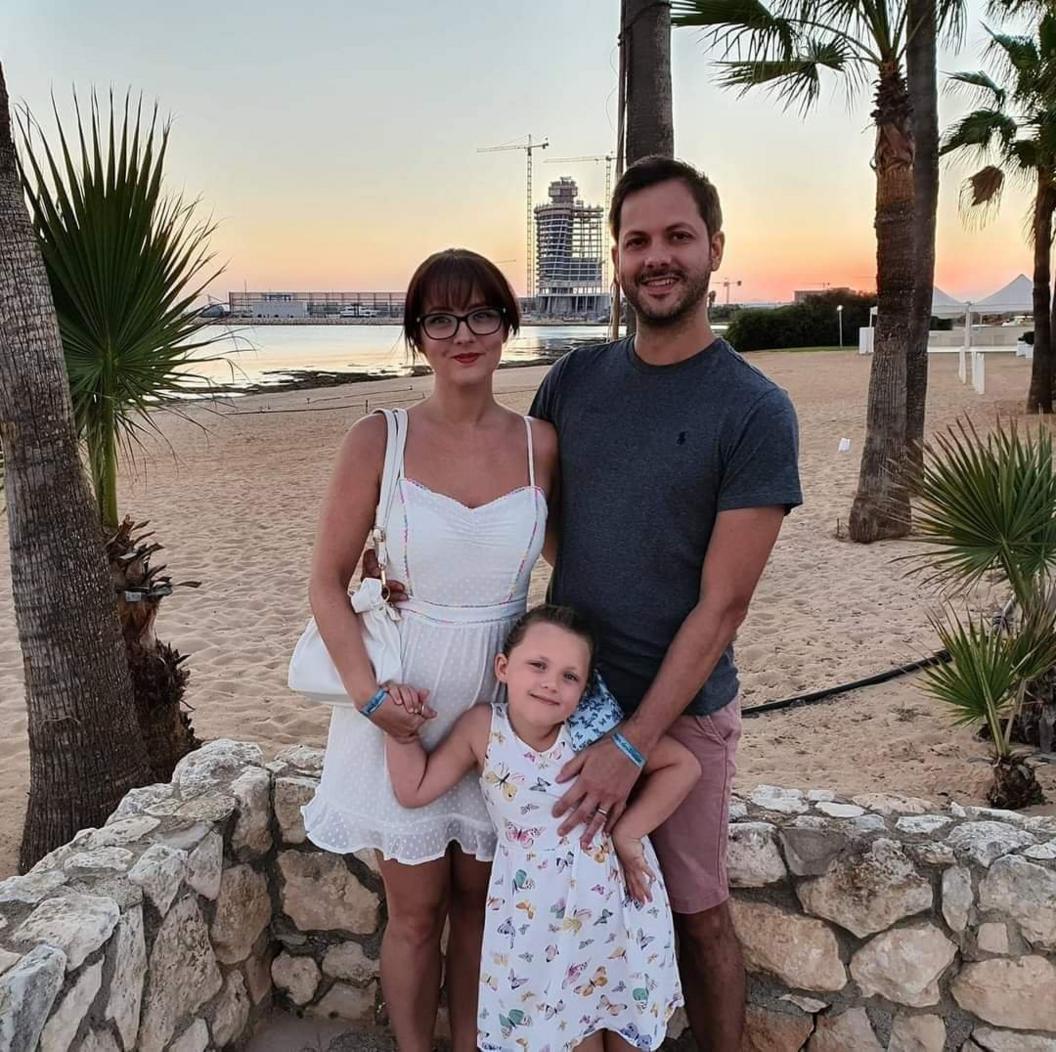
Kim and her husband Anthony, and daughter Olivia, on a family holiday in Cyprus - a treat from her in-laws.
"You've got a little one who wants to go out and have ice creams and go on different adventures and you can't afford to do that because all you're thinking is, 'I need to make this minimum payment, I need to pay off this credit card'."
Private hip, knee and cataract surgery up 148%
Figures from the Private Healthcare Information Network (PHIN) show 3,575 people in Wales chose to pay for one-off procedures from October to December 2021.
In 2019, the total was 1,885 for the same period, though the numbers had dropped during lockdown and the latest figures are likely to include patients who had postponed treatment.
These figures do not include more routine consultations, diagnostic appointments or private health insurance.
Just over half of these procedures were either cataract, hip or knee surgery, according to data from PHIN, an independent organisation that collates data on private consultants and hospitals.
Those three surgery types alone have seen a rise of 148% in Wales since 2019, though numbers here are lower than other parts of the UK.
'I would be in tears, you'd feel sick from the pain'
"My symptoms started from about the age of 11 and had progressively got worse," said Mrs Williams.
"Before I went for the private consultation, it had gotten to the point where I was in pain, continuously throughout the day.
"I would be in tears and couldn't breathe. You'd feel sick from the pain - I was vomiting daily.

Kim said she was told without surgery she'd be waiting for endometriosis to cause a bowel obstruction, which could risk her life.
"I spent most of my time in bed or curled up on the sofa with heat packs.
"I gave myself burns all over my stomach just trying to get some sense of relief because painkillers didn't touch it."
While surgery initially helped, Mrs Williams knows the endometriosis has returned and further surgery is needed.
"And so I'm back to not being the mum that I want to be, or the wife that I want to be," she added.
Record high NHS waiting lists
The rising use of private healthcare is set against the wider context of the backlog for planned care in Wales, following the pandemic.
There were 722,000 patient pathways in May (described as such because each patient could be on more than one list), which was another record high.
The numbers waiting more than two years for treatment remains high.
The latest set of figures show 65,053 treatments had been waiting more than two years, although this number dropped by nearly 3,000 compared to the previous month.
While some can afford to take the private route, charities have said it exacerbates a two-tier health system.
"Within the current climate, if you haven't got the finances to be able to opt for private healthcare and you're not getting the care that you need from the NHS then this is going to have a huge impact on your quality of life," said Christina Tanti, from Race Equality First.
She explained that women, people from ethnic minorities and people in deprived areas face barriers to basic health care because of existing health inequalities.
"We know from our advocacy service and case work services here at Race Equality First, that cultural differences and language barriers hinder ethnic minority people's access to healthcare in the UK," she said.
"I think we're going to see these health inequalities that ethnic minority people are facing and have been facing for many years, becoming even more deeply ingrained - and I think this is going to have a knock on effect on life expectancy."
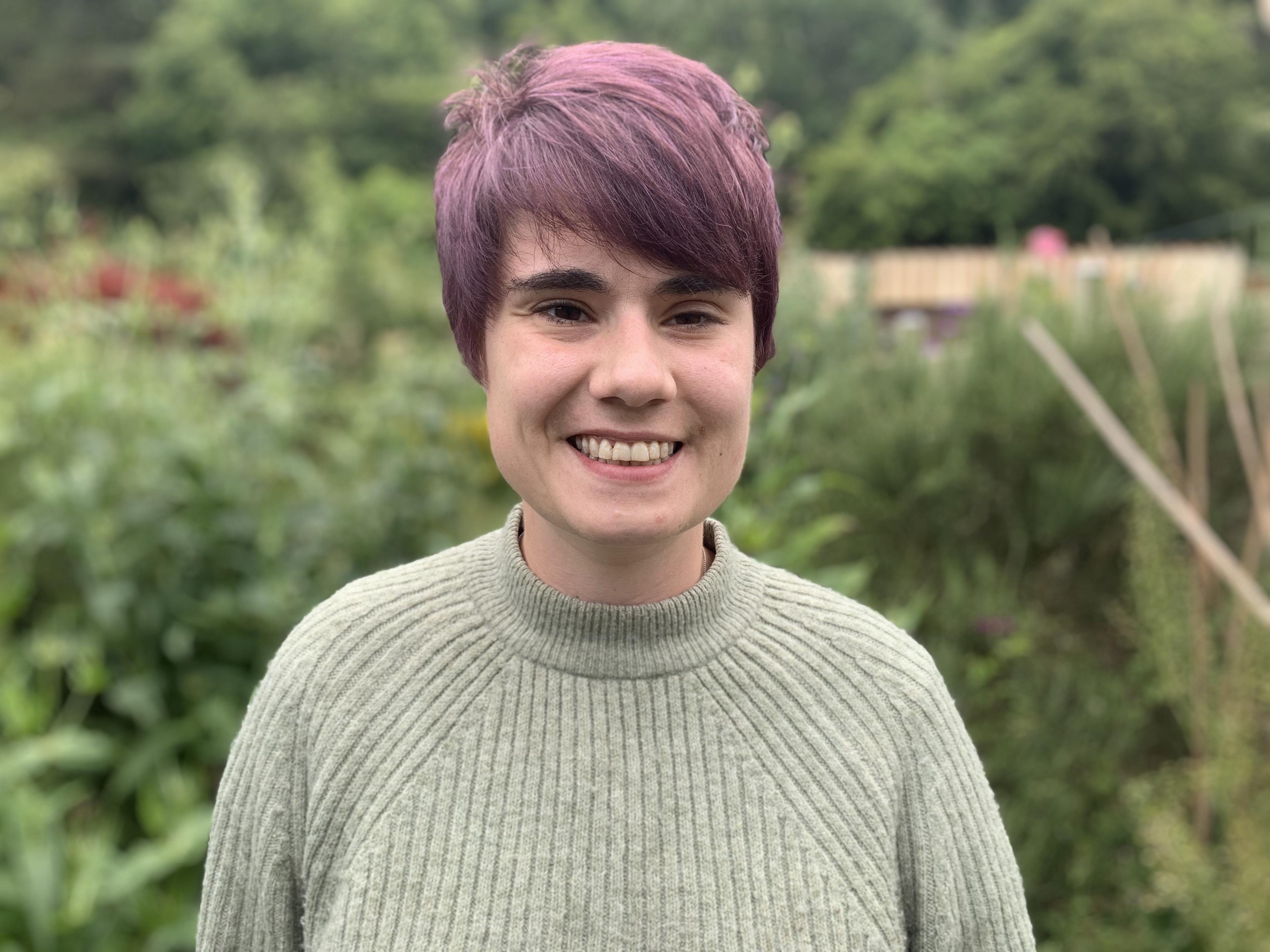
Alex Osborne from Disability Wales said there can be unforeseen costs if someone has a number of health conditions.
Many disabled patients find private healthcare will often have additional, unexpected costs.
Alex Osborne from Disability Wales said doctors will understandably recommend extra MRIs for those with a number of health conditions, to better understand complicating factors - bumping up the cost.
"They might go in thinking 'I can afford £4,000 to have my knee replaced' but come out being told that it's going to be a minimum of £10,000 because of all the other conditions," she added.
"And that's not going to take into account they probably need more physio sessions than someone that's not disabled, or specialist physio."
Ms Osborne said the longer patients wait, the more it can increase the risk of developing further problems.
"People are getting arthritis in their wrists and elbows because they've had to start using a stick daily because they've been waiting so long for a knee replacement," she said.
"It impacts on all parts of their life, with ongoing issues that could have been avoided."
A Welsh government spokesperson said it had "committed more than £1bn extra this Senedd term to help the NHS recover from the pandemic and cut waiting times" and that "the pandemic has had a massive impact on our health and care services".
They added: "Working with health boards, we have set ambitious but realistic targets to tackle the pandemic backlog for planned care, backed by significant extra long-term funding.
"In addition a dedicated recovery director and team will support each health board to develop and implement their local proposals in line with the national strategy."
Related topics
- Published23 June 2022
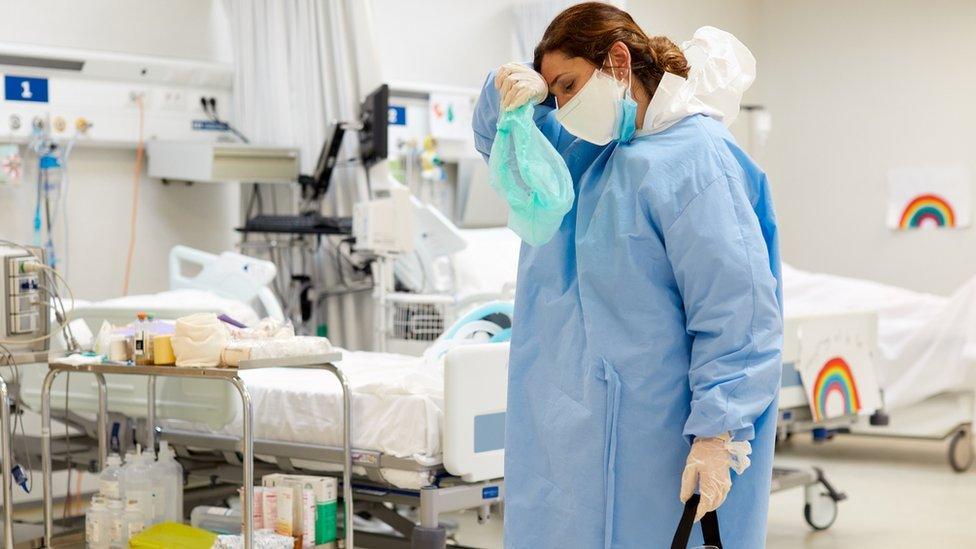
- Published21 July 2022
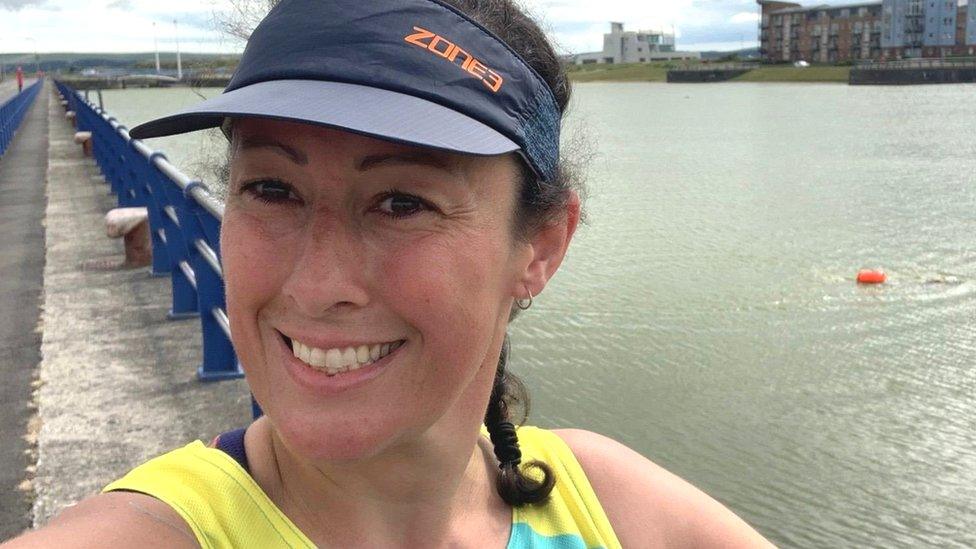
- Published3 February 2021
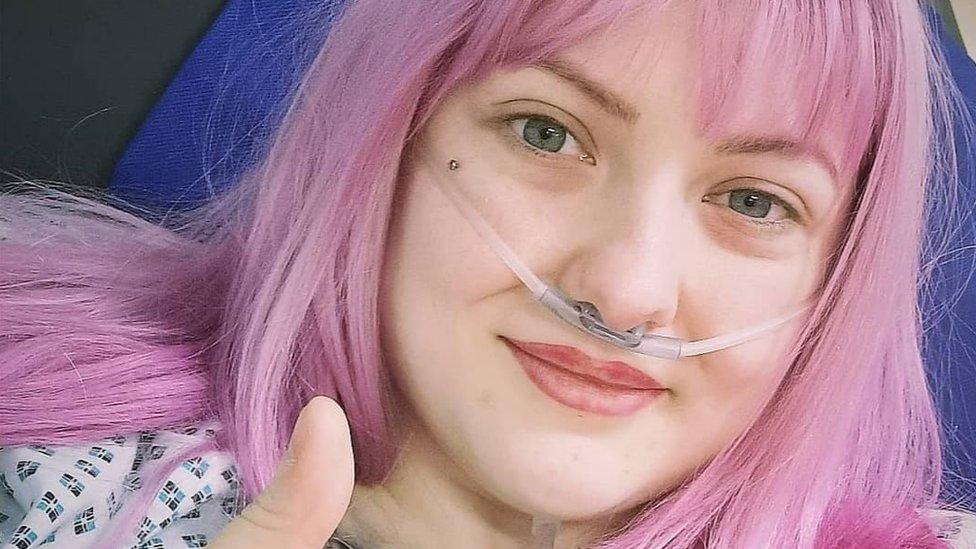
- Published9 September 2021
